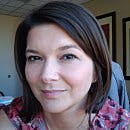If you are new to the field of sonography, you might not have considered the importance of mentorships in developing your career. Professionals of every variety rely on mentors at different stages of their careers to expand their talent and improve their skills.
If you have never previously considered a mentor or are unsure of where to start, this guide outlines how you can find the right person to help you rise to the next level.
Begin With a List of Goals
Before you approach a potential mentor, prepare a list of needs and goals for yourself. Whether you are a newer sonographer and still building your knowledge base, or an experienced sonographer interested in honing a specific skill, such as working with color Doppler, identifying your goals from the start will help you choose the right mentor. You can also seek out a mentor for important career steps, such as learning to manage a private practice or expanding your practice to include more adolescent patients.
How to Identify a Mentor
As the American Association of Medical Colleges (AAMC) points out, a mentoring relationship is different than a shadowing relationship. Although both have the end goal of learning, a mentorship is a more long-term relationship that includes active participation rather than simple observation. But, how do you know if a potential mentor has the skill set necessary to help you achieve your goals?
A short interview with a potential mentor can help you figure out if the relationship will be a productive one. This is when you put your list of goals to work. For example, if you are interested in moving from 2D to 3D ultrasound in order to provide better diagnostic capability for your patients, it makes sense to identify a person with experience using 3D ultrasound. Similarly, if you are looking to decrease your time per scan, your mentor is likely going to be a person who has performed many scans and understands how to get the most out of each one.
How to Approach a Potential Mentor
The AAMC has a few important tips for reaching out to a potential mentor. First, tell this person why you are contacting them, briefly describe your goals and explain why you think they might be a good fit. Then, ask to schedule a meeting to discuss a potential mentoring relationship in person.
If this person agrees to meet with you, be prepared to discuss your goals at greater length, but always be courteous of your potential mentor's time. It is possible that this person simply does not have the time to foster a meaningful mentor/mentee relationship or even that they do not have the experience to enhance your current skill level. If this is the case, use the opportunity to ask for referrals to other individuals who might be better suited to serve as a mentor for you. Then, do your homework once again, and approach the person who seems to be the best fit.
When you find a mentor, be sure to set a plan that works for both of you—and follow through. This means being prepared, showing up when scheduled, asking for regular feedback on your progress, and even checking to make sure that your mentor has time to continue the process.
Consider whether some of what you intend to learn can be accomplished via video calls. If you will observe actual patient care, be aware that each facility may have its own requirements for training, protecting patient privacy and even limitations on how informal trainees may interact with patients. Always be sure to thank your mentor for their time.
If you have benefitted from time with a mentor, you may also enjoy serving as a mentor to another budding sonographer looking to expand their skills. The American Institute of Ultrasound in Medicine has a mentorship program aimed at providing professional mentors for medical students and also offers networking and interest group opportunities.
Understanding the importance of mentorships can open your professional network to other sonographers you might not have met otherwise. These networks provide a variety of peers to share ideas, join educational opportunities and learn about ultrasound not just as a diagnostic tool, but as a career.



